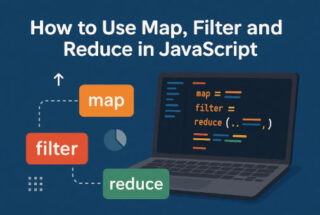Node Package Manager (NPM) is an essential tool for managing dependencies in a Node.js project. With NPM, developers can easily install, update, and manage packages and dependencies in their projects. One of the commands that developers often come across while working with NPM is “npm install –legacy-peer-deps.” But, what exactly does this command do?
In this article, we’ll delve into the meaning and use of the “npm install –legacy-peer-deps” command to help you get a better understanding of its purpose.
Introduction to NPM and Dependency Management
Before we dive into the details of the “npm install –legacy-peer-deps” command, let’s take a quick look at NPM and dependency management. NPM is a package manager for the JavaScript programming language, and it is the default package manager for Node.js. With NPM, developers can easily install packages and dependencies required for their projects.
Dependency management is a crucial aspect of software development, and NPM makes it simple for developers to manage project dependencies. Using NPM, developers can ensure that their projects contain all necessary dependencies, which are up-to-date and compatible with one another.
What is the Purpose of the “npm install –legacy-peer-deps” Command?
The “npm install –legacy-peer-deps” command is used to install packages and dependencies in a Node.js project, but with a specific purpose. This command is used to install dependencies that are specified in the “peerDependencies” section of a package’s “package.json” file, but with a twist. The “–legacy-peer-deps” option is used to install these in a legacy mode, which means that they are installed as if they were the normal, rather than the peer one.
What are Peer Dependencies in NPM?
Before proceeding, it is essential to understand what NPM peer dependencies are. These are dependencies that are required for a package to function but are not intended for use by the package’s end users. In other words, peer dependencies are required by a package but which should be installed in the parent project instead of the package itself.
For instance, suppose you have a package that needs the “lodash” library. If the “lodash” library is specified as a peer dependency in the package’s “package.json” file, the end-user must install the “lodash” library in their project, rather than in the package.
The –legacy-peer-deps option is used when installing packages in npm (Node Package Manager).
By default, npm enforces strict peer dependencies, meaning that it will only install a package if the required versions of its peer dependencies are satisfied.
In some cases, however, a package might have a peer dependency that is declared in an outdated or incompatible way, or one that is no longer necessary. In these cases, the –legacy-peer-deps option allows you to install the package even if its peer dependencies are not satisfied.
The use of the –legacy-peer-deps option is generally discouraged, as it can lead to potential compatibility issues and make it difficult to troubleshoot problems with your dependencies in the future.
However, in some cases it may be necessary to use it to install a package that you need for your project, despite its problematic peer dependencies.
How to Use the “npm install –legacy-peer-deps” Command
Using the “npm install –legacy-peer-deps” command is simple. Simply navigate to the root directory of your Node.js project in your terminal or command prompt, and enter the following command:
npm install –legacy-peer-deps
This will install all of the dependencies specified in the “peerDependencies” section of your “package.json” file, as well as any other dependencies required for your project, in a legacy mode.
FAQs
What is npm?
NPM is a package manager for JavaScript programming language. It is used to manage the dependencies and packages required for your projects.
What is a package manager?
package manager is a software tool that manages the installation and updating of packages or libraries required by a software project.
What is a package?
A package is a piece of software that contains code, assets, and other resources that can be used by other software projects.
Why was the legacy peer dependencies feature discontinued in npm version 3?
The legacy peer dependencies feature was discontinued in npm version 3 because it was deemed to be a less efficient and less reliable method of specifying dependencies between packages.
What are the risks of using the “npm install –legacy-peer-deps” command?
A: Using the “npm install –legacy-peer-deps” command may lead to compatibility issues, as the dependencies installed in a legacy mode may not be fully compatible with the latest versions of NPM or with other dependencies in your project. It’s important to thoroughly test your project after using this command to ensure that it works as expected.
Can the npm install –legacy-peer-deps command be used for new projects or packages installed with newer versions of npm?
No, the npm install –legacy-peer-deps command should only be used for older packages that were installed with legacy peer dependencies and should not be used for new projects or packages installed with newer versions of npm.
Conclusion
In conclusion, the npm install –legacy-peer-deps command is used to install packages that were installed with legacy peer dependencies, ensuring that they continue to work correctly in newer versions of npm. This command should be used only in cases where you are using an older package that was installed with legacy peer dependencies and need to ensure that it continues to work correctly.

